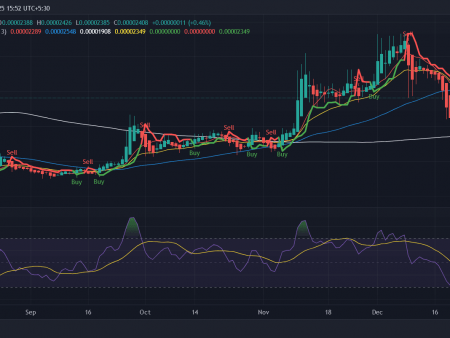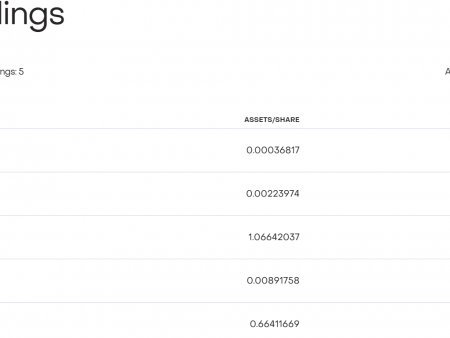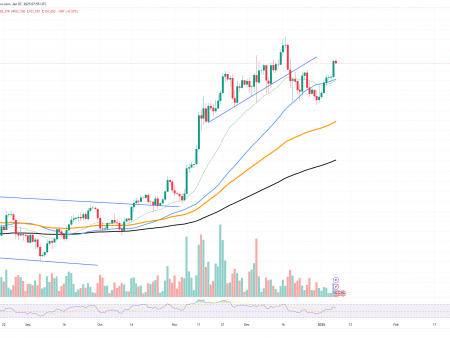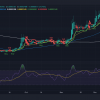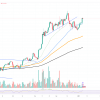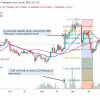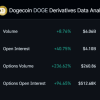Binance is paying one of the largest fines in corporate history to the US Department of Justice, while its founder and CEO Changpeng “CZ” Zhao resigned from his position running the platform as part of a agreement with multiple federal agencies. Meanwhile, Kraken faces a lawsuit from the U.S. Securities and Exchange Commission that echoes the previous wave of SEC lawsuits.
Binance settled charges with several US agencies (with one major exception), ending one of the most anticipated regulatory actions in crypto.
Binance is the world’s largest cryptocurrency exchange by volume and just agreed to pay what federal officials describe as some of the largest fines in the country.
Binance and Changpeng “CZ” Zhao reached a settlement with multiple federal agencies on Tuesday, agreeing to pay billions of dollars in a deal that will also see Zhao face possible prison time, Binance make a “complete exit” from the US and agree to strict monitoring by monitors for years to come.
If you missed Tuesday’s regulatory show:
-
Binance and the Department of Justice settled charges that Binance conspired to conduct an unlicensed money transmission business where it did not have an anti-money laundering program. Binance will pay a $1.8 billion fine and $2.5 billion in forfeitures, as well as appoint a monitor for three years to ensure its compliance with federal law in the future.
-
Zhao and the Department of Justice settled charges that the now former CEO of the exchange violated the Bank Secrecy Act and attempted to cause a financial institution to violate the Bank Secrecy Act. Zhao agreed to pay $50 million, but his sentencing won’t be for a few months.
-
Binance and the Commodity Futures Trading Commission established he Commodity Futures Trading Commission (CFTC) March 2023 lawsuit alleging that he operated an unlicensed crypto derivatives trading platform in the US and endeavored to hide it from US regulators. Binance will pay $1.35 billion in civil penalties and another $1.35 billion in disgorgement.
-
Zhao and the CFTC agreement, in which Zhao will pay $150 million to the agency.
-
Former Binance Chief Compliance Officer Samuel Lim settled charges with the CFTC, in which Lim will pay $1.5 million to the agency.
-
Binance and the Financial Crimes Enforcement Network (FinCEN) settled charges which violated anti-money laundering and sanctions laws. Binance will pay $3.4 billion in fines and appoint a supervisor for five years to ensure it complies with federal regulations and leaves the US completely (Binance.US is not affected by this).
-
Binance and the Office of Foreign Assets Control (OFAC) settled charges which violated anti-money laundering and sanctions laws. Binance will pay $968 million.
If you noticed that the numbers don’t add up, you’re right. It’s a confusing mess, largely because the amounts overlap each other and involve some financial write-offs that are postponed unless the company goes off course again. An actual total of $4.3 billion will move from Binance to the US government’s coffers, officials said. FinCEN is raising $780 million. Another $150 million is a suspended fine, while $2.47 billion will be credited to the Department of Justice and the CFTC. OFAC will collect another $70 million and credit another $898 million to the Department of Justice. CoinDesk’s Jesse Hamilton checked it out and the CFTC will almost certainly receive the $1.35 million fine.
-
The Department of Justice will receive $2.018 million from Binance and $50 million from Zhao.
-
FinCEN will receive $780 million from Binance.
-
OFAC will receive $70 million from Binance.
-
The CFTC will receive $1.35 billion from Binance, $150 million from Zhao, and $1.5 million from Lim.
-
$150 million is a suspended sentence.
“One of the things that Treasury is working hard on in collaboration with the Department of Justice is that a substantial amount of this fine will go to victims of state-sponsored terrorism in a fund that supports payments to those families and individuals “said a senior Treasury official. the official said.
Binance’s role as a major crypto exchange that operated secretly within the US is perhaps the biggest story. The exchange targeted “VIP users” in the US to fuel its growth in the early days, according to court documents. Zhao knew about this and knew that about a third of the users on his platform were from the US, and he spent time figuring out how to hide that these users were on the platform instead of deleting them.
Additionally, the exchange had many users from sanctioned locations, the Justice Department alleged, citing Binance’s discovery of “600 ‘verified level 2’ users from Iran” in November 2019 as just one example. Almost $1 billion in transactions occurred on the Binance platform between US users and users from sanctioned countries.
Many of the allegations repeat or are linked to what we saw in the March CFTC lawsuit: that the exchange knowingly and deliberately allowed U.S. persons to trade on its platform without performing know-your-customer or anti-money laundering checks. , and without registering. properly. The exchange allowed American clients to trade with clients from sanctioned countries, which is obviously illegal.
“The Department of Justice is also imposing oversight as well as reporting requirements on Binance as part of today’s resolution,” said Attorney General Merrick Garland. “Going forward, Binance must file suspicious activity reports as required by law. The company must review past transactions and report suspicious activity to federal authorities. This will advance our criminal investigations into malicious cyber activity and terrorist fundraising. , including the use of cryptocurrency exchanges to support groups like Hamas.”
The Justice Department monitor will be in effect for three years. FinCEN is also appointing a supervisor who will serve for five years and who will be given access to all of Binance’s books and records.
This seems to go well beyond US users, and I imagine there are regulators around the world who may be interested in what exactly the US finds in those past transactions.
There was one notable absence Tuesday: Securities and Exchange Commission Chairman Gary Gensler was not among the federal officials announcing deals with the exchange.
There’s an easy answer to why this may have been the case: the SEC is probably looking for court victories it can point to as part of its ongoing effort to treat crypto exchanges similarly to US stock exchange systems. The other agencies They won massive victories and sanctions, but most of those accusations were basically the same: Binance offered Americans access to products and services without following the law.
We’ll talk more about this below, but the SEC is currently tasked with having cryptocurrency trading platforms split up their exchange, clearinghouse, and broker/dealer functions, such as how stock trading works. Binance (and more) Binance.US that Binance.com) is one of those companies that doesn’t treat these features any differently.
